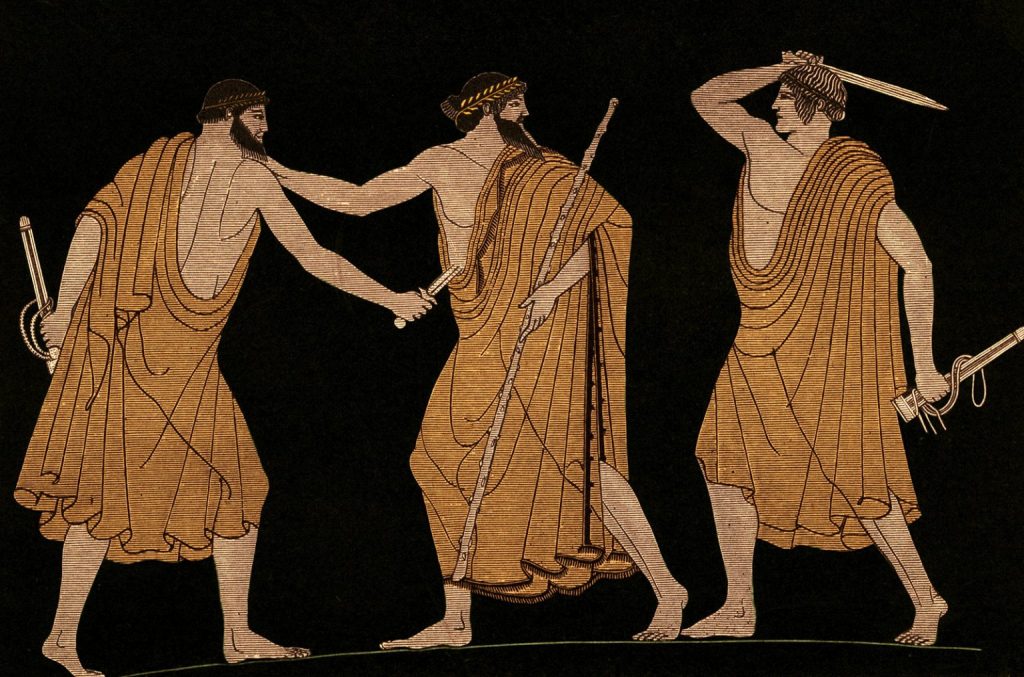*By Dr Shannon Brincat, University of the Sunshine Coast
The actions of Vladimir Putin to invade Ukraine have once again raised the fundamental problem of tyranny. It has led to some, like Republican senator Lindsey Graham, to even call for his assassination. The Biden administration immediately denied any such plans. But despite the White House’s best attempts to deny targeting Putin, it begs the question, when is it acceptable to assassinate a tyrant?
Classical Greek city-states were well aware of this conundrum. Many of its philosophers dealt with the problem of tyranny at length, and some even explored the thorny question of the legitimacy of tyrannicide. Originally tyranny was not pejorative but just meant a chief or boss, in distinction to monarchs. Some even saw them as essential in breaking the strangle-hold of the aristocracy in the Archaic period from which democracy could develop.
By the Fourth Century BCE however, Aristotle had made the distinction between two types of tyrants: those who usurp power and those who rule by oppression. This definition still holds today where tyranny is seen to manifest externally through aggressive international war and mass human rights violations of other people, or internally through ‘democide’, where a ruler murders its own people.
In Greece, the permissibility of tyrannicide – killing tyrants by citizens – emerges in the deaths of Gyges, Phalaris of Acragas, and Hipparchus. The central justification was the equality of all citizens before the law that tyranny violated. As tyranny was ‘rule by the one’ it broke the epigram that ‘the law was king’. As Sophocles declared, there is ‘no polis that is ruled by one man only’.

Socrates saw tyranny as a spiritual disorder where the natural hierarchy of the soul and the polity were disturbed. Plato condemned tyranny as a degenerate political form because they had lost sight of the common good to instead focus on the interests of the one. Passages from the Republic, irrefutably demonstrate that for Plato a tyrant forfeits his life.
Aristotle went further, seeing tyranny not just in evil rulers but any lawless, arbitrary rule, that was against the public good. In such cases, Aristotle praised tyrannicide as just and he bestowed great honour ‘on him who kills a tyrant’. We find statues of the so-called Tyrannicides, Harmodius and Aristogeiton, in the alters of many Greek homes from the time. But this case shows one of the great difficulties of tyrannicide: were these genuinely concerned with freeing the people, or just with enacting revenge for personal grievances against Hipparchus?
After the tyranny of the Four Hundred, Athenians would swear the Oath of Demophantos, pledging to kill any would-be-tyrant and rewarding those who protected the community in this way. For many, this was seen as way to mobilise the people before tyranny could take hold. It lasted for a while, until the foreign empire of Alexander broke democracy for thousands of years.
Is any of this relevant today?
I would say resoundingly, yes! The Greek condemnation of tyranny remains fundamentally important. As Robertson QC stated in reference to the tyranny of Saddam Hussein, there is much to be said about states today coming together and outlawing tyranny – this would promote democracy, human rights, and the rule of law. But we can never let individual states be the sole judge, jury and executioner of tyrants as this would be prone to misuse and lead to grave instability.
Athens shows that the best defence against tyranny is a thriving democracy where citizens trust each other and have the institutional capacity to prevent any would-be-tyrant from emerging. We had the chance to help build such a democracy in Russia after the fall of communism. Yet, the west encouraged oligarchs and corporations to take it over and did business with them instead.
Across the west, backsliding on democratic practices is acute. Where political polarization is so high and where the rich and powerful are able to lobby and even buy votes, we are vulnerable to tyranny. Classical Greece shows us that prevention is better than the cure.
*Dr Shannon Brincat is a Senior Lecturer of Politics and International Relations at the University of the Sunshine Coast and Global Discourse Deputy Editor at Bristol University Press.



